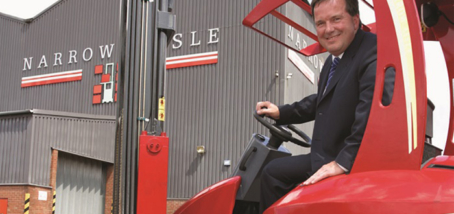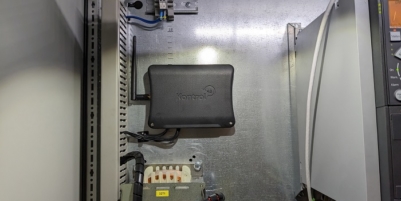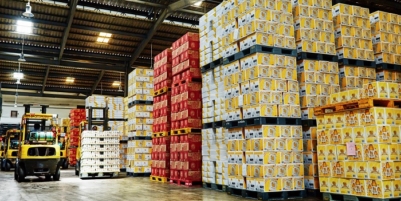-
ROSSLARE EUROPORT TARGETS HEALTH & SAFETY WITH CAMERA TELEMATICS PARTNERSHIP - 2 days ago
-
Landmark Study Reveals Wearable Robotics Significantly Boost Safety and Efficiency in Industrial Environments - July 24, 2024
-
Visku Tackle The Retail Seasonality Challenge One Pallet At A Time - July 22, 2024
-
KAMMAC AND BERGEN LOGISTICS STRENGTHEN FASHION & LIFESTYLE SERVICES IN THE UK - July 19, 2024
-
TENTBOX EXTENDS PARTNERSHIP WITH ARROWXL TO SUPPORT INCREASING DEMAND - July 17, 2024
-
The Perfume Shop improves customer journeys while driving profitability in partnership with Scurri - July 17, 2024
-
ZEROMISSION SECURES £2.3M ($3M) INVESTMENT TO ACCELERATE ELECTRIC FLEETS - July 16, 2024
-
BCMPA CELEBRATES SUCCESS OF 2024 CONFERENCE - July 15, 2024
-
Best of the Best: Jungheinrich Celebrates Triple International Award Win - July 12, 2024
-
GOPLASTICPALLETS.COM CALLS ON NEW CHANCELLOR RACHEL REEVES TO CONSIDER PLASTIC PACKAGING TAX REFORM - July 10, 2024
ood and FMCG companies must take steps to organise themselves now if they are going to have the right warehouse infrastructure in place to meet post-lockdown trading conditions says John Maguire, managing director of intralogistics solutions specialist, Narrow Aisle Ltd.
Food and FMCG companies need to prepare now for shifting market conditions
In the early stages of the COVID-19 crisis fears over shortages of food and other essential items prompted panic buying in supermarkets across Britain. The UK’s largest retailer Tesco reported a 30% increase in sales, for example, while Sainsbury’s recorded a 48 per cent peak.
Coronavirus panic buying placed an unprecedented strain on supermarket retailers and their suppliers. However with many food and FMCG companies still holding much of the inventory that they had stockpiled within their warehouses and distribution centres in the run up to Britain’s exit from the EU, the impact on retail supply chains as consumers rushed to fill their baskets was less damaging than it might have been.
But the buying frenzy significantly depleted stock levels and, as a result, many food and FMCG companies are looking for ways to consolidate empty warehouse space and reconfigure their storage systems to reduce overall storage costs and prepare for the future business environment.
With consumer spending power likely to be significantly reduced as the economic shockwaves from the lockdown reverberate around the world, food and FMCG companies must take steps to organise themselves now if they are going to have the right warehouse infrastructure cost base in place to meet future trading conditions.
Through its Warehouse Systems Division, Narrow Aisle Ltd works with 3PL, food and FMCG companies to update and transform existing facilities to significantly improve efficiency and reduce operating costs.
We provide a free survey of a site’s potential storage capacity together with CAD drawings and an overall appraisal of the operation. Our aim is to develop the most efficient and cost-effective system for the client’s and their customers’ needs.
And, with their ability to operate in much narrower aisleways by articulating up to 220 degrees and lift pallet loads to heights of over 14 metres, Flexi articulated lift trucks manufactured and supplied by Narrow Aisle are ideal for food and FMCG companies that are looking to consolidate storage space.
Flexis can save warehouse operators at least 30 per cent of their storage costs. Furthermore, the truck’s design allows it to unload pallets from road vehicles or goods-in marshaling areas and deliver loads directly to the storage racks which can reduce existing handling costs by a further 50 per cent.
If the Flexi’s space saving abilities are combined with a complete re-configuration of the storage system to improve, say, customer order picking techniques, an existing food or FMCG warehouse operation can be transformed to meet the demands of post-lockdown market conditions and save many thousands of pounds in the process.

































